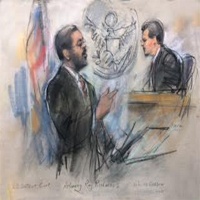Clinton Township DUI-DWI Lawyer, Michigan
Sponsored Law Firm
-
 x
x

Click For More Info:
-
Richards & Associates, PLLC
200 East Big Beaver Road Troy, MI 48083» view mapCriminal Defense Accomplished Criminal Defense Attorney
If you face criminal charges, you deserve an experienced defense lawyer who has a reputation for winning the tough cases.
800-844-5250
Denise A Hirschmann
Farms, Child Support, DUI-DWI, Criminal
Status: In Good Standing Licensed: 32 Years
Matthew D. La Grasso
Traffic, DUI-DWI, Juvenile Law, Domestic Violence & Neglect
Status: In Good Standing
 Ray Richards Troy, MI
Ray Richards Troy, MI AboutRichards & Associates, PLLC
AboutRichards & Associates, PLLC Practice AreasSpecializations
Practice AreasSpecializations
